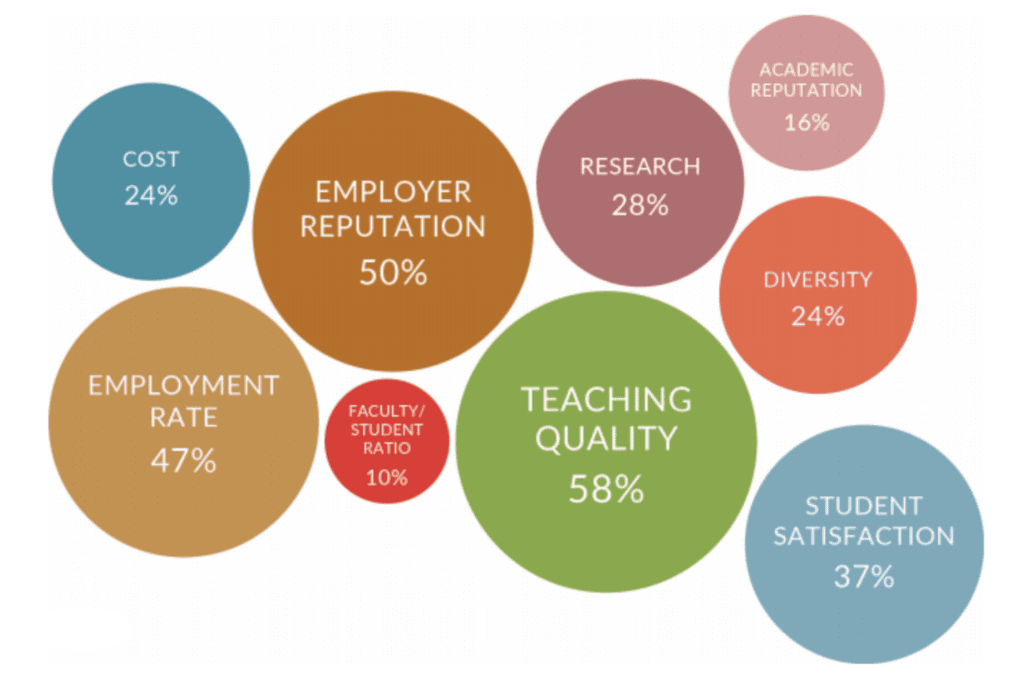Comparing universities in India online involves considering various factors to determine which institution aligns best with your academic and personal preferences. Here’s a step-by-step guide on how to compare universities in India online:

Define Your Priorities
Table of Contents
- Identify what matters most to you in a university. Consider factors such as academic programs, faculty, campus facilities, location, campus culture, extracurricular activities, and career placement opportunities.
Research Accreditation
- Ensure that the universities you are considering are accredited by recognized accreditation bodies. Accreditation is a crucial indicator of the quality of education and ensures that the institution meets certain standards.
Use University Ranking Websites
- Explore reputable university ranking websites like NIRF (National Institutional Ranking Framework), QS World University Rankings, and others. These rankings consider various factors and can give you an overview of the university’s standing in comparison to others.
Visit University Websites
- Go to the official websites of the universities you are interested in. Explore the academic programs, faculty profiles, admission requirements, and any other relevant information provided on their websites.
Compare Academic Programs
- Evaluate the academic programs offered by each university. Consider the range of courses, specializations, and the flexibility the university provides in tailoring your academic path.
Check Faculty Profiles
- Review the faculty profiles to understand the expertise and experience of the teaching staff. Knowledgeable and experienced faculty members contribute significantly to the quality of education.

Examine Campus Facilities
- Look into the campus facilities, including libraries, laboratories, accommodation options, sports facilities, and technology infrastructure. A well-equipped campus can enhance your overall learning experience.
Consider Location
- Think about the location of the university. Consider factors such as climate, proximity to home, cost of living, and potential career opportunities in the region.
Explore Alumni Success Stories
- Check if the university highlights success stories of its alumni. Alumni achievements can give you insights into the impact of the university on graduates’ careers.
Look for Industry Connections
- Consider whether the university has strong connections with industries, offering opportunities for internships, placements, and collaboration on research projects.
Compare Admission Criteria
- Review the admission criteria for each university, including entrance exams, application process, and eligibility requirements. Ensure that you meet the criteria for the programs you are interested in.
Read Student Reviews
- Search for reviews from current or former students. Online forums, social media, and university review websites can provide valuable insights into the student experience.
Attend Virtual Open Houses or Webinars
- Many universities conduct virtual open houses or webinars. Attend these events to interact with faculty, current students, and admission representatives. It’s an opportunity to get a feel for the university environment.
Check Financial Considerations
- Compare tuition fees, available scholarships, and financial aid options. Consider the overall cost of education, including living expenses.
Evaluate Industry-Specific Rankings
- For certain fields, there may be industry-specific rankings or considerations. For example, if you are interested in engineering, you might explore rankings specific to engineering colleges.
Make a Comparison Chart
- Create a comparison chart that includes the factors important to you for each university. This visual aid can help you make a more informed decision.
By carefully considering these factors and gathering relevant information, you can compare universities in India online and make a well-informed decision based on your preferences and academic goals.
Sharing is Caring 🙂

